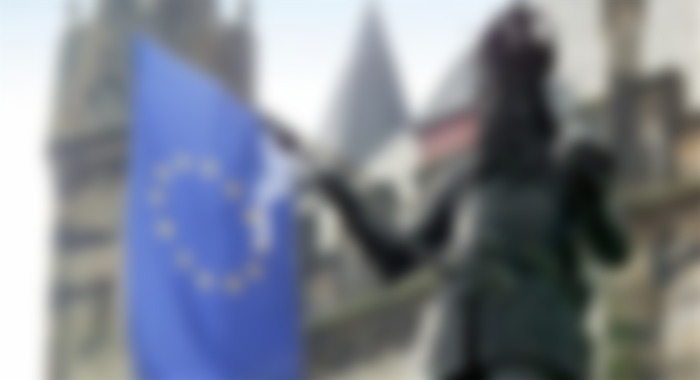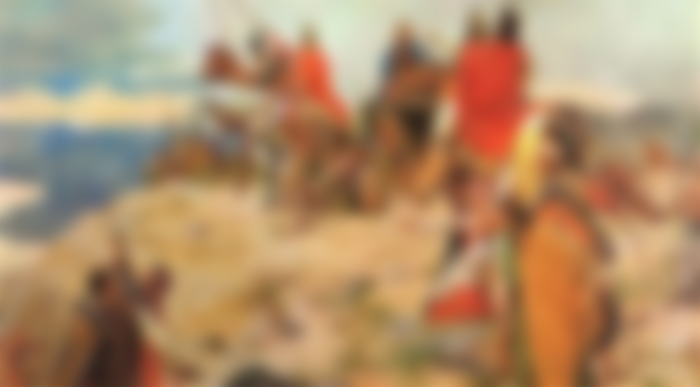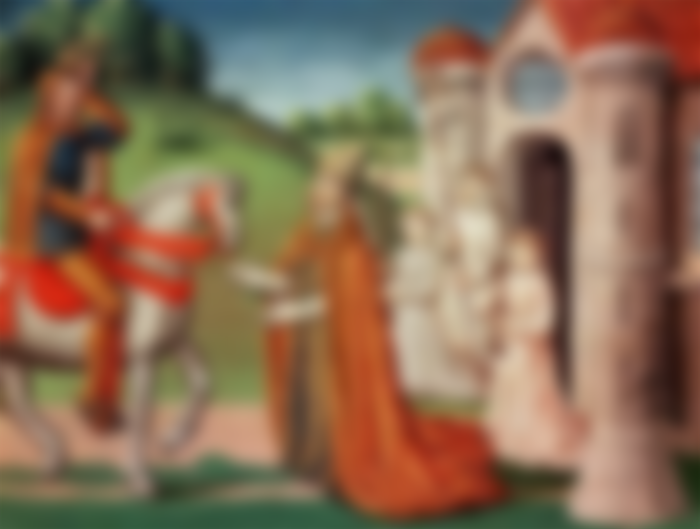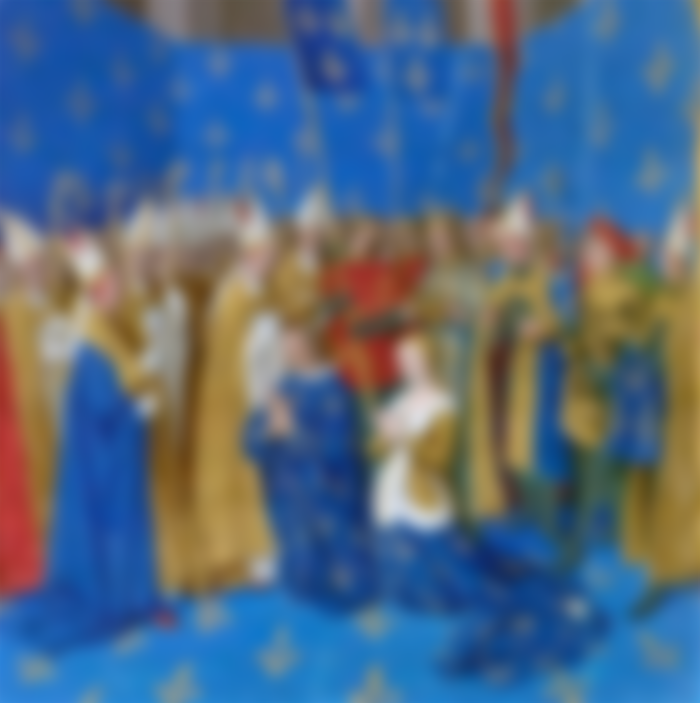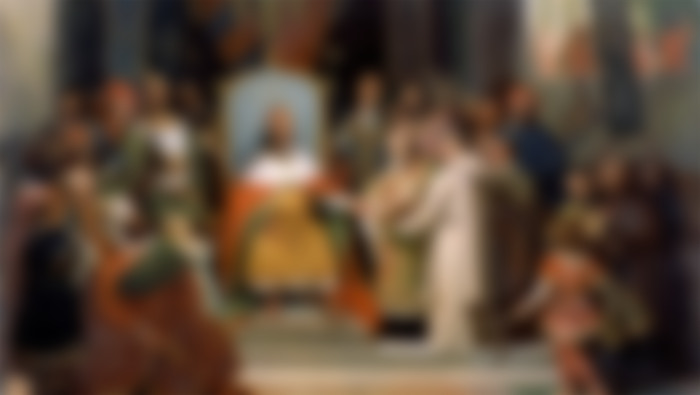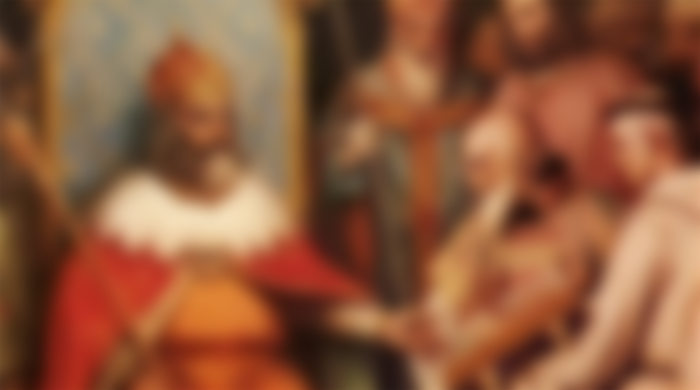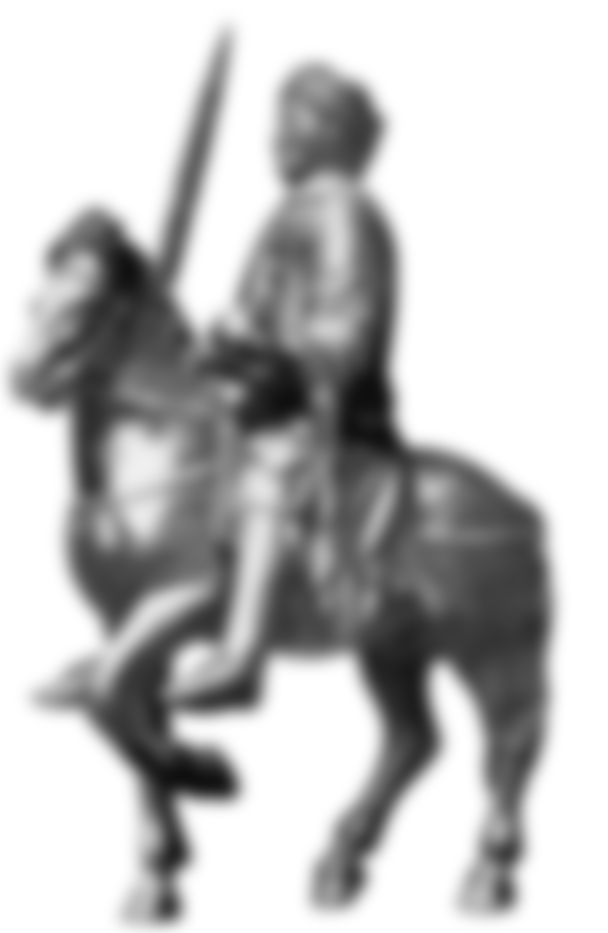Charlemagne was the king of Italy, and then the first emperor of the Frankish Empire and the first emperor of Western Europe.

He was the son of Pippin the Little, the first ruler of the Carolingian dynasty. He continued to act in the way his father had charted. Initially (768-771) he ruled together with his brother Carloman, and then independently after his brother died.

Charlemagne continued the path of his father Pippin the Little in the development of Frankish and the expansion of its territory. Under the auspices of Francia, it united a large part of Europe. We can rightly call Charlemagne: the Glorious, the Famous, the Victorious, the Wise, and the Great as he liked to call himself. Charlemagne could also be called the Unifier of Europe because under him much of Europe was territorially, administratively, culturally and religiously united.
Charlemagne left an indelible mark, and during his reign the Frankish state was at its peak, and he himself, because of his great deeds, will forever occupy a special place in the history of medieval Europe. The Carolingian Empire, or rather the Empire of Charlemagne, is the framework of the Middle Ages.
The Wars of Charlemagne

As he expanded his territories, he shared borders with new peoples who often disagreed with his policies. First of all, they were the Slavic tribes Bodrići, as well as the Avars. Bodric was easily forced to fall under his rule. It was somewhat more difficult with the Avars, but in 795 he turned the situation in his favor, taking advantage of the disagreement of the Avar elders. He soon annexed the Avar state to his territory.

Carlo also clashed with the Arab Caliphate. In 778 he went to the Pyrenees where the battle of Zaragoza took place. Carlo barely came out of this battle alive. In a new battle in the Basque Country under the leadership of the prefect of the province of Brittany named Ronald the Arabs were defeated. Later, this battle was sung through the "Epic of Roland". In the new campaigns for the expansion of the territory in 788, Istria fell under his rule. And then he fought again against the Arabs in 796. The epilogue of the struggle was in Karl's favor and further expansion of his territory. He directed church policy against the cult of icons, which he declared at the synod in Frankfurt in 794.
Charlemagne as emperor

As he conquered half of Europe, achieving great fame and power, he aspired to create an empire, and for that he needed the support of the church or the pope. In the Vatican Hirachi, Leo III succeeded Pope Hadrian after 795. In order to achieve his goal, Charlemagne took care of good relations with the new pope, who was publicly considered a debaucher surrounded by women. He was accused of selling church valuables for personal gain. Carlo drew his attention to his behavior in a letter from 796.
After the liturgy in Rome in 799, the pope was greeted on the street when he was physically attacked by ordinary citizens and respectable people. They tried to mutilate him. The Pope was assisted on that occasion by the Duke of Spolent, who received him into his castle. The Pope wrote to Charles for help. They met in Paderborn where they made a deal. Charles sent two Frankish archbishops to Rome to investigate the whole case. They found that the pope lived in accordance with church regulations and that he was not guilty of what they accused him of. By Charles' order, all those who took part in the conspiracy against the Pope were arrested and taken to France.

The Pope was very grateful to Charlemagne, and in order to repay him, he crowned Charlemagne on December 25, 800, in St. Peter's Church in Rome, as the great Roman emperor.
Organization of Government and Administration

Charles liked to be compared to the Roman emperors, but his state was in many ways different from the former Roman Empire. It was created by the force of the land army. Charles had three functions: to command the army, to be the supreme judge, and to protect the Church. In Aachen, in addition to the king, his family, friends and priests, central services are being developed around several key people: the court judge, who
presides over the court in the absence of the king; the chamberlain, who takes care of the king's treasury, his income and expenses; Chancellor, who drafts and sends an increasing number of legal acts. In their jurisdiction are clerks, laymen and, especially, clerics. There are also seneschals or majordos who took care of the king's food and sometimes supervised the estates where it was produced; the cupbearer was in charge of the ruler's cellar and vineyards, and the marshal or constable was in charge of the ruler's stables and the supreme authority over the army. The chaplain, the high priest, was also very important.

Important representatives of the central government in the provinces were the counts. They were appointed by the king and had judicial, military, financial and other executive powers in a small area. Along the borders, larger areas would be entrusted to Karl's people. They became margraves or dukes and had power over several counts.
In Charles' time, taxes were paid by conquered peoples, and the general tax was most often paid by collecting contributions. Much of Karl's income came from his own estates because he was the largest landowner.
Charles was the first, and one of the noblest, in a series of emperors, who made it clear to Rome that the pope and the emperor were guardians of the faith. The church was for him a means of authority exercised by the bishops, and he personally presided over the Frankish synods. The plan to reform both the Frankish and Roman churches by applying the rules of Sts. Benedict, sowed the seeds of the later European idea that Christian kings were obliged not only to protect the Church but also to care for a healthy religious life in their countries.

Charlemagne loved art. Following the example of the Byzantine emperors and their buildings, he built many castles and churches. The buildings he built of stone have been preserved, while those of the ninth have lost all trace. He made Aachen an imperial city.
He was influential outside the borders of his territory. He worked in an alliance against Byzantium together with the Caliph of Baghdad, Harun-al-Rashid. The kings of Scotland considered him their master. Among other things, he was involved in English politics. He also spread his influence to Eastern Europe, where he went on several expeditions. In order to prevent the Danes from attacking the western European coasts, he embarked on a campaign that is considered his last.

In 806, he published a document dividing the state into his three sons to resolve the issue of inheritance during his lifetime. In 813, he crowned his youngest son Louis emperor in Aachen. Two older sons died while Carlo was still alive. After the coronation of his son as emperor, he lived a peaceful life at court, although he became increasingly ill. He died at the court on January 28, 814, where he was buried. After his death there was a sudden destruction of the state because his successors were unable to sustain it. After various turmoils, the Frankish Empire was divided into Italy, Germany and France in 843, and this act ended Charles' empire.

